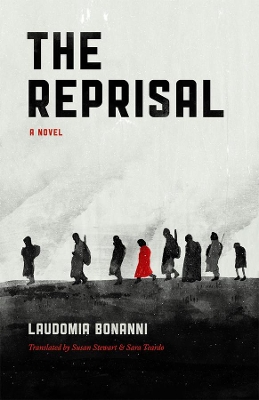Reviewed by Lianne on
The novel in many ways reminded me of Hannah Kent’s Burial Rites in that a woman is sentenced to death but in this instance the sentence would not be carried out until after the child is born. Set towards the end of the Second World War and the confusion of German soldiers and Allies across the countryside, it paints a very oppressive and sombre atmosphere to the novel.
The characters assembled in this tale is a rather motley group, their collective behaviour akin to a mob mentality; away from the hierarchy, they are unsure of what they are doing and where they are going with their claims. I felt bad for the seminarian who enters the picture later on; he is trying to reach out and help however he can and his presence is greeted with a rather mixed reaction. I did have some difficulty with La Rossa, the condemned woman of the novel. She wasn’t very likeable; like her actions with the men, she pushes the reader away, leaving us with an impression that she’s just bitter inside and out with no regard for anything. It’s provocative, but there’s no payback or explanation for it to garner a shred of my understanding; if anything, it also got really annoying after a while.
Thematically, this short novel is chock-full of thoughts and conflicts, touching on social issues such as country vs. the city, education, the rich vs. the poor, etc. Women’s issues and status of the time is represented through La Rossa, and she is not shy in voicing her opinion to the men of her unfair treatment, labelling her overall role, etc. One theme that does emerge later on and that felt more like a tack-on rather than an overarching theme that I was aware of was that of memory and the impact of the Second World War in Italy; it’s an interesting theme, searching for answers, the fates of certain characters, of the lives that continued and were lost…but it sort of dragged the ending out, it could have finished a chapter earlier.
The Reprisal is overall an intriguing story, and it was interesting to read about the Italians’ experience of the Second World War written by an Italian.
Reading updates
- Started reading
- 8 July, 2014: Finished reading
- 8 July, 2014: Reviewed
